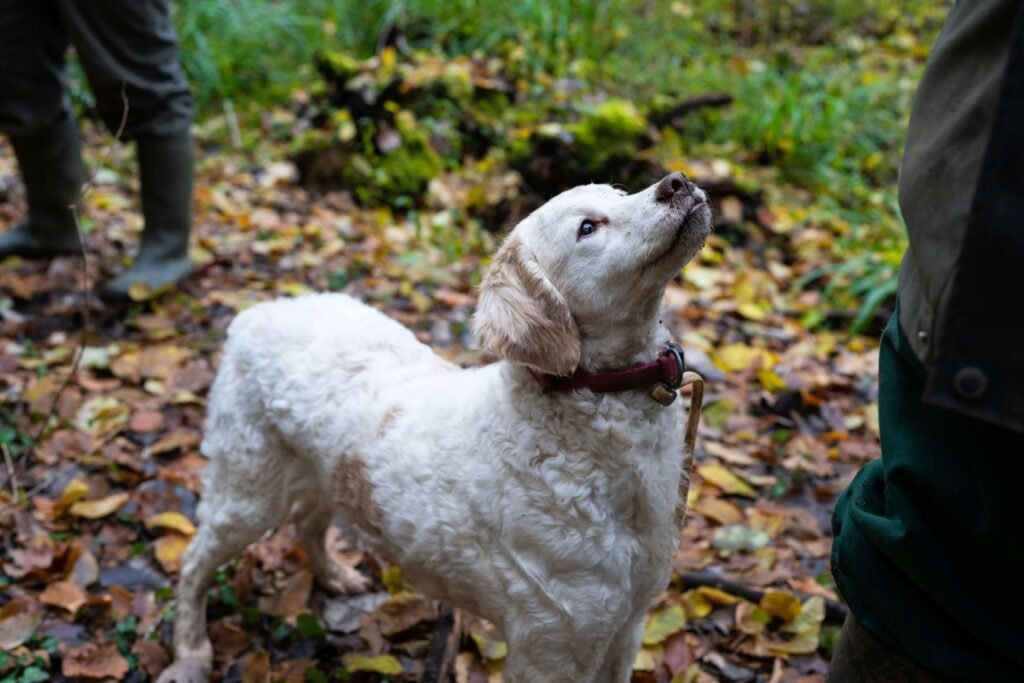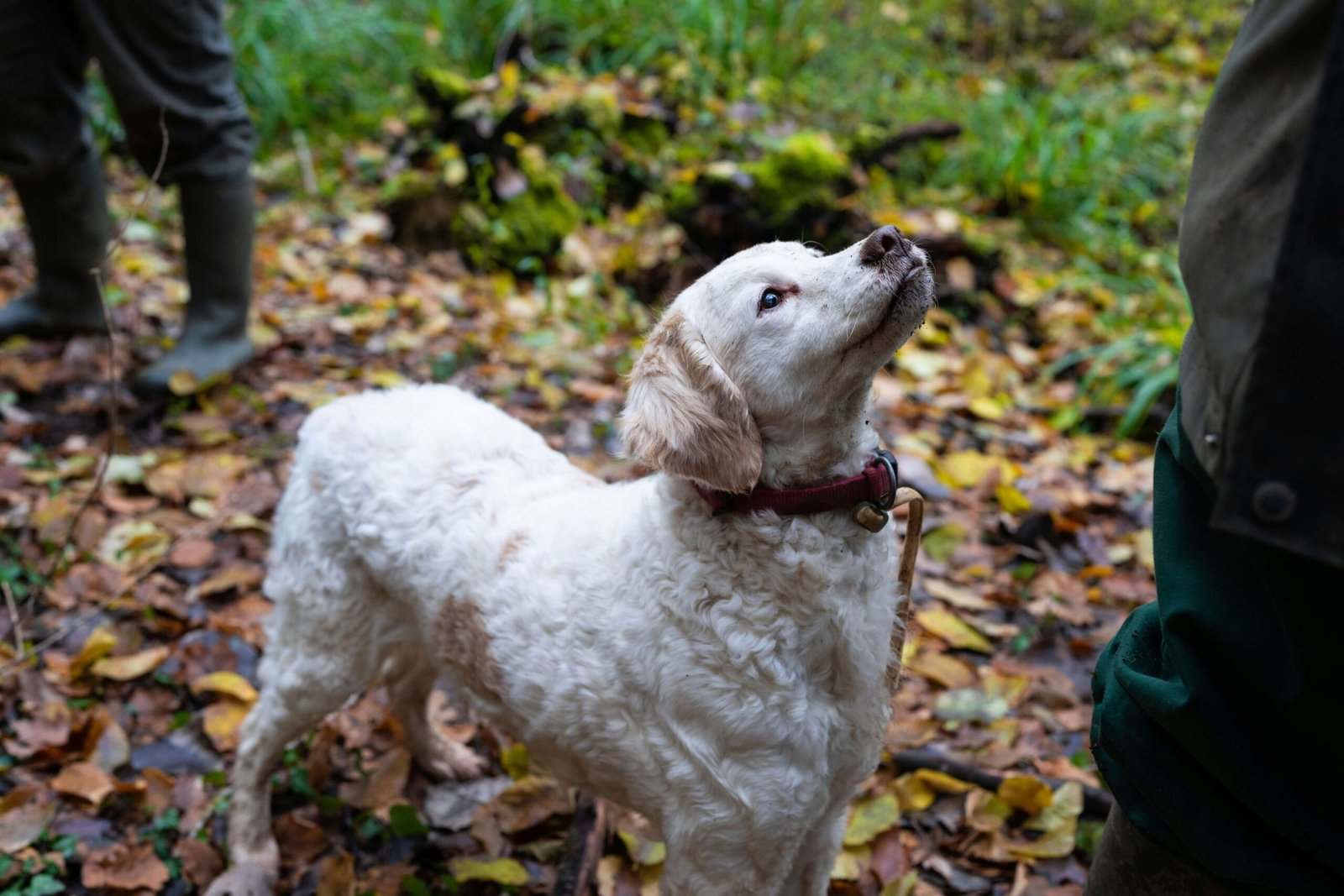Can Dogs Eat Brussels Sprouts? A Guide to Safe and Healthy Feeding
If you’re a dog owner who loves sharing healthy snacks with your furry friend, you might have wondered: Can dogs eat Brussels sprouts? These tiny, nutrient-packed vegetables are a favorite among health-conscious humans, but are they safe for our canine companions? The good news is that Brussels sprouts are not only safe for dogs in moderation but also offer several health benefits. However, there are important considerations to keep in mind to ensure your pup enjoys them without any digestive upset.
In this blog post, we’ll explore everything you need to know about feeding Brussels sprouts to your dog, from their nutritional value to preparation tips and potential risks. Let’s dive into the world of greens and discover how they can benefit your four-legged friend!
Nutritional Benefits of Brussels Sprouts for Dogs
Brussels sprouts are packed with vitamins, minerals, and antioxidants that can support your dog’s overall health. When served in moderation, these little veggies can be a great addition to your dog’s diet. Here’s a breakdown of their nutritional benefits:
Rich in Fiber
Fiber supports healthy digestion and can help regulate your dog’s bowel movements, reducing the risk of constipation.High in Vitamin C
This powerful antioxidant boosts the immune system and helps protect your dog’s cells from damage caused by free radicals.Contains Vitamin K
Vitamin K plays a crucial role in blood clotting and bone health, ensuring your dog stays strong and resilient.Packed with Folate
Folate (vitamin B9) supports cell growth and function, which is particularly beneficial for growing puppies or senior dogs.Low in Calories
With minimal calories, Brussels sprouts make a guilt-free treat option for dogs watching their weight.
While Brussels sprouts offer impressive health benefits, it’s essential to serve them in moderation to avoid digestive issues. Always introduce new foods gradually and monitor your dog’s reaction.
Preparing Brussels Sprouts for Your Dog
How you prepare Brussels sprouts can make all the difference in ensuring they’re safe and enjoyable for your dog. Proper preparation minimizes the risk of choking or gastrointestinal discomfort. Here’s how to get started:
Wash Thoroughly
Rinse Brussels sprouts under cold water to remove dirt, pesticides, or other contaminants before serving.Cook Until Soft
Steaming or boiling Brussels sprouts makes them easier to digest and reduces the risk of choking. Avoid adding salt, butter, or oil during cooking.Chop into Bite-Sized Pieces
Cutting the sprouts into small pieces ensures they’re safe for dogs of all sizes to chew and swallow.Avoid Seasonings
Dogs don’t need added spices, herbs, or sauces, which can upset their stomachs or even be toxic. Plain is always best.Serve in Moderation
Limit portion sizes based on your dog’s size and dietary needs. A few small pieces as an occasional treat are sufficient.
By following these preparation tips, you can safely incorporate Brussels sprouts into your dog’s diet without compromising their health. Remember, moderation is key!
Check this guide 👉Can Dogs Eat Dates? Best 7 Health Tips!
Check this guide 👉Can Dogs Eat Pizza? Best 7 Health Tips!
Check this guide 👉Can Dogs Eat Sausage? Best 7 Health Tips!

Benefits of Brussels Sprouts | Potential Risks of Brussels Sprouts |
|---|---|
High in fiber for better digestion | Excessive gas if overfed |
Rich in antioxidants like vitamin C | Choking hazard if not chopped properly |
Supports immune system health | Digestive upset in sensitive dogs |
Low-calorie, healthy snack option | May cause bloating if consumed raw |
Promotes strong bones with vitamin K | Overfeeding can lead to nutrient imbalance |
Signs Your Dog Might Not Tolerate Brussels Sprouts
While most dogs can enjoy Brussels sprouts without issue, some may experience adverse reactions. It’s important to recognize signs that your dog isn’t tolerating this vegetable well. Here’s what to look out for:
Excessive Gas
Brussels sprouts contain compounds that can cause flatulence in dogs, especially if fed in large quantities.Diarrhea or Vomiting
Digestive upset, such as loose stools or vomiting, may indicate your dog’s system is struggling with the vegetable.Loss of Appetite
If your dog refuses to eat after trying Brussels sprouts, it could be a sign they didn’t agree with their stomach.Lethargy or Discomfort
A lack of energy or visible discomfort, such as whining or restlessness, may suggest digestive distress.Bloating
In rare cases, excessive consumption of Brussels sprouts can lead to bloating, which requires immediate attention.
If you notice any of these symptoms, discontinue feeding Brussels sprouts and consult your veterinarian if the issue persists. Every dog is unique, so it’s important to tailor their diet accordingly.
Alternatives to Brussels Sprouts for Your Dog
If your dog doesn’t tolerate Brussels sprouts or you’re looking for variety, there are plenty of other healthy vegetables to consider. These alternatives provide similar nutritional benefits while catering to different tastes and tolerances. Here are some options:
Carrots
Carrots are low in calories, high in fiber, and rich in beta-carotene, which supports eye health.Green Beans
Green beans are packed with vitamins A, C, and K, making them a nutritious and crunchy snack for dogs.Pumpkin
Plain, canned pumpkin (not pumpkin pie filling) is excellent for digestion and can help with both diarrhea and constipation.Zucchini
Zucchini is hydrating, low in calories, and rich in vitamins, making it a great choice for dogs on a diet.Sweet Potatoes
These starchy veggies are loaded with fiber and vitamins, but should always be cooked and served plain.
Offering a variety of vegetables ensures your dog receives a wide range of nutrients while keeping mealtime exciting. Always introduce new foods gradually and monitor for any adverse reactions.
Potential Risks of Overfeeding Brussels Sprouts
While Brussels sprouts are nutritious, overfeeding them can lead to unpleasant side effects for your dog. Understanding these risks ensures you can avoid unnecessary discomfort or health issues. Here’s what happens if your dog eats too many Brussels sprouts:
Excessive Gas
The sulfur-containing compounds in Brussels sprouts can cause significant flatulence, which may be uncomfortable for both you and your dog.Digestive Upset
Too many Brussels sprouts can overwhelm your dog’s digestive system, leading to diarrhea or vomiting.Nutrient Imbalance
Feeding large amounts of any single food can disrupt the balance of nutrients in your dog’s diet, potentially causing deficiencies.Choking Hazard
Whole or improperly chopped Brussels sprouts pose a choking risk, especially for smaller dogs or those that gulp their food.Weight Gain from Added Ingredients
If you add oils, butter, or seasonings while cooking, the extra calories can contribute to unhealthy weight gain.
To keep your dog safe and healthy, always stick to small portions and plain preparations. Moderation is the key to avoiding these risks.
Creative Ways to Serve Brussels Sprouts to Your Dog
If you’re looking to make Brussels sprouts more appealing or fun for your dog, there are several creative ways to serve them. These methods not only enhance palatability but also ensure your dog enjoys the vegetable safely. Here are some ideas:
Mix with Kibble
Chop cooked Brussels sprouts finely and mix them into your dog’s regular kibble for a nutrient boost.Freeze for a Cool Treat
Blend cooked Brussels sprouts with water, pour into ice cube trays, and freeze for a refreshing summer snack.Stuff into Toys
Use mashed Brussels sprouts as a filling for interactive toys like Kongs to keep your dog entertained.Combine with Other Veggies
Pair Brussels sprouts with dog-safe vegetables like carrots or green beans for a colorful, nutrient-packed meal addition.Dehydrate for Crunchiness
Dehydrate cooked Brussels sprouts in the oven until crispy, creating a crunchy treat that satisfies your dog’s chewing instinct.
These creative serving ideas make Brussels sprouts more enjoyable while maintaining their nutritional benefits. Experiment to find what your dog loves best!
How to Introduce Brussels Sprouts to Picky Eaters
Some dogs are hesitant to try new foods, including Brussels sprouts. If your pup is a picky eater, introducing this vegetable gradually and strategically can help them warm up to it. Here are some tips to encourage acceptance:
Start Small
Offer just one tiny piece at first to avoid overwhelming your dog with an unfamiliar taste.Pair with Favorite Foods
Mix Brussels sprouts with your dog’s favorite treats or meals to create positive associations.Cook Thoroughly
Overcooking Brussels sprouts until they’re soft makes them easier to eat and less bitter, appealing to picky palates.Hand-Feed as a Treat
Hand-feeding Brussels sprouts can make the experience more personal and rewarding for your dog.Be Patient
It may take multiple attempts before your dog accepts Brussels sprouts, so don’t give up if they refuse initially.
With patience and creativity, even the pickiest eaters can learn to enjoy Brussels sprouts. Remember, every dog has unique preferences, so tailor your approach to suit their personality.
Frequently Asked Questions About Feeding Brussels Sprouts to Dogs
How many Brussels sprouts can I give my dog?
Start with one or two small pieces, depending on your dog’s size, and adjust based on their tolerance.
Are raw Brussels sprouts safe for dogs?
Raw Brussels sprouts are harder to digest and may cause bloating or gas. Cooking them is safer and more comfortable for your dog.
Can Brussels sprouts cause allergies in dogs?
While rare, some dogs may have sensitivities to certain vegetables. Watch for itching, swelling, or digestive issues after feeding.
Should I feed Brussels sprouts daily?
No, Brussels sprouts should be given as an occasional treat rather than a daily staple to avoid digestive upset.
Are frozen Brussels sprouts okay for dogs?
Yes, as long as they’re thawed, cooked, and served plain. Avoid frozen sprouts with added sauces or seasonings.
Final Thoughts: Can Dogs Eat Brussels Sprouts?
The answer is yes—dogs can eat Brussels sprouts in moderation, provided they’re prepared correctly and introduced carefully. These nutrient-rich vegetables offer numerous health benefits, from improved digestion to boosted immunity, making them a worthwhile addition to your dog’s diet. However, it’s crucial to be mindful of portion sizes and potential side effects like gas or bloating. By following the tips outlined in this guide, you can safely incorporate Brussels sprouts into your dog’s meals or use them as an occasional treat. Remember, every dog is different, so always observe how your furry friend reacts to new foods. With a little care and creativity, you can keep your pup happy, healthy, and well-fed!
Do Cats Have Taste Buds? Best 7 Expert Tips! – Discover how cats experience flavors and why their taste is so unique.
Do Dogs Have Taste Buds? Best 7 Expert Tips! – Discover how dogs experience taste, their preferences, and what it means for their diet and health.
Can Cats Taste Sweet? Best 7 Expert Tips! – Discover why cats can’t taste sweetness, how it affects their diet, and tips to keep them healthy and happy.
Can Dogs Taste Sweet? Best 7 Expert Tips! – Discover how dogs perceive sweetness, which foods are safe, and tips to manage their sweet cravings responsibly.





